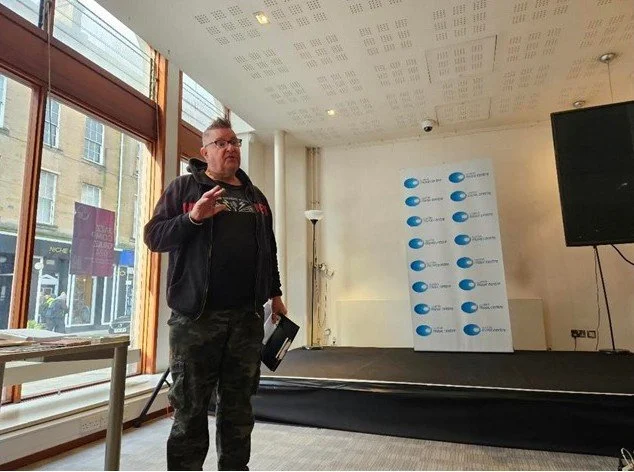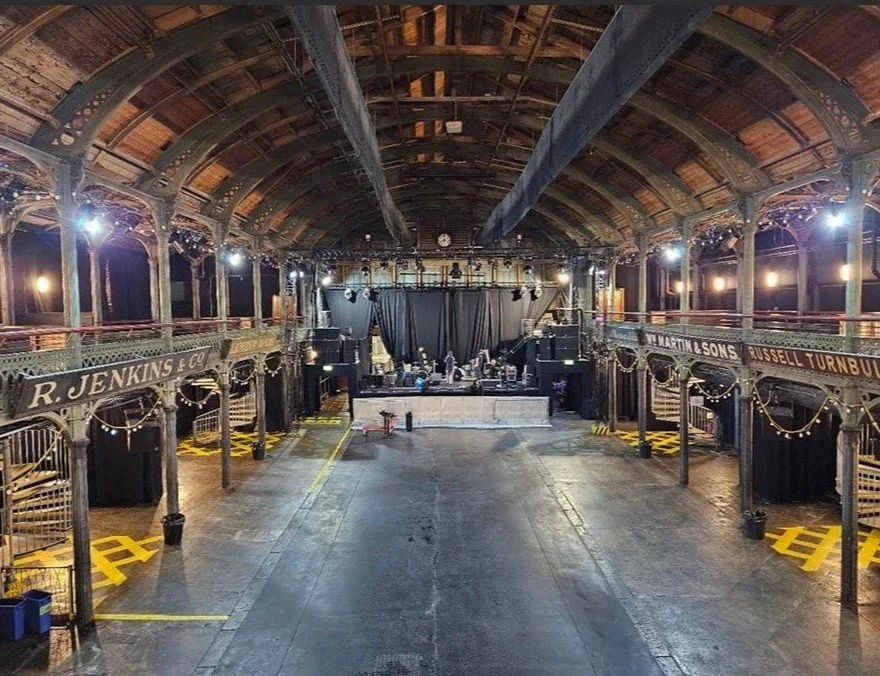A Scottish Journey: Celtic Connections Music Festival
Photos: Nujma Bond
By Nujma Bond
I had the luck of being in Glasgow during a major annual music festival called Celtic Connections. As it so happens, it was the 30th anniversary of the well-loved event.
Held over several days, there was a wonderful variety to choose from: Celtic, folk, world, indie, jazz, rock, and classical music – with traditional and modern interpretations. The performances by a range of artists took place in a range of venues around the city, such as popular pubs and the city’s main concert destination: The Glasgow Royal Concert Hall.
The festival also included a selection of music-related things to do, such as an historic tour in the city’s downtown region, showcasing some of the musical venues that still exist today, and sharing their storied pasts: some remain the earliest places in Glasgow’s history where people have gathered for years to enjoy music and entertainment.
The walking tour happened on one of the few sunny days I experienced while in Scotland and that was a plus. Organized by Glasgow Music City Tours, it began with a complimentary sip of liquor - you can guess which kind for those who wanted a taste, and continued with a short introduction to the history of music in the city, as told by a humorous local musician with a classic Scottish accent, and whose artistic name was P6.
“Glasgow as a city, has a huge musical contribution to the world,” he said during his presentation. He described the city’s roots in traditional music, and how that reality has contributed to its accolades and to Scotland’s reputation. He explained some of the country’s early musical influences, such as the period that saw the Highland Clearances. Some of those who were forced from the northern regions and islands of Scotland starting in the mid 1700s eventually settled in the south, and brought strong Gaelic influences to Glasgow. He shared neat sidebars, such as how those early influences - sometimes rooted in political and class struggles - also made their way to North America and became bluegrass and country, and even fused with African music. Rock and roll, soul, funk, even “techno” can all trace roots to those early influences, he explained.
“We punch above our weight in this part of the world, I’m very proud of it,” he later told me. “Sometimes little seeds can grow into huge musical movements.” And that musical heritage is something Glaswegians are very proud of, he shared, even if many are not aware of just how deep it goes.
Among other topics, P6 spoke about some of the historic music halls in the city which also hosted such luminaries as Charles Dickens; and about the area’s connection to Robbie Burns who also wrote musical lyrics.
A representative talked about the Scottish Music Centre, where the tour’s initial history lesson took place. She shared that the place has 40,000 items in its archive – the largest archive of Scottish music in the world. Books, records, recordings, they have it all.
“We get phone calls every now and then of people asking, like humming a tune on the phone, and asking (a colleague) what the song is,” she said. “We can help with that!”
Then, it was time to take to the streets. Our group visited a handful of locations, each with a musical soul. Places where people met and collaborated over the years, where new sounds and new music was born, and where it’s still played.
On one of our first stops, we were introduced to what’s fondly called The Old Fruitmarket. Located in the city’s Merchant Quarter, it started out as a wholesale fruit market and much later was “upcycled,” said P6, into what it is today: a stylish and richly acoustic musical venue that attracts many talented musicians for festivals and performances. Looking up at an incredibly high vaulted ceiling, while standing on its great balcony, and drinking in the intricate artistic touches from the past, it was not hard to envision the venue as it once was, filled with fruit, and as it is today, filled with music.
Old Fruitmarket
Perhaps the most intriguing spot we visited is known as the world’s oldest surviving music hall, built in 1857. The history of the Britannia Panopticon Music Hall originated with sing-alongs in pubs, and we learned how a small group decided to take this organic culture to the stage, creating variety theatre, and the music hall - a product of its time. As we were led up into the darkened theatre, the history was literally palpable. You could silently imagine a bygone era of plays being performed, and musicians sharing tunes on the smallish stage, as a volunteer interpreter named Peter Crilly shared stories about its colourful past including how the place had no toilets, so “you went where you went.” And how Stan Laurel - from Laurel and Hardy comedic fame - got his start in that very place.
All sorts of shows are still performed there today, and Crilly told me the building was originally designed as a retail and warehouse space, but no-one ever rented the warehouse on top, so it was turned into a music hall which he says wasn’t unusual.
“Music halls were popping up all over Glasgow at the time,” he said. He explained that the hall is considered the oldest in the world because those that were built before it no longer exist, and others that were built around the same time or afterwards, either burned down or were torn down. He did add that another similar venue still exists in London but it has been rebuilt, and the Glasgow hall exists in its original state.
For him, one of the hall’s most memorable facts, is that it used to have a zoo in the basement with two chimpanzees, Solomon and Betsy. “Solomon’s ghost still haunts the building,” he shared. “If you leave something down and you come back and it’s moved somewhere else, that’s Solomon!”
After walking by and learning about several great places, our small tour group stopped at a local watering hole for refreshments, and some more oral history about other landmark venues. Then, we all went our separate ways a lot richer, having learned lot more about Glasgow’s past.
“We want to share our enthusiasm for the music scene in Glasgow!” Fiona Shepherd told me, the tour’s other guide who had joined us on the walk.
In part two of my music festival experience, I’ll introduce you to some incredible musicians whose performances I was fortunate to enjoy one evening, at the Glasgow Royal Concert Hall.
Let’s just say it was amazing Celtic-infused music to remember!
Nujma Bond in the Old FruitMarket






